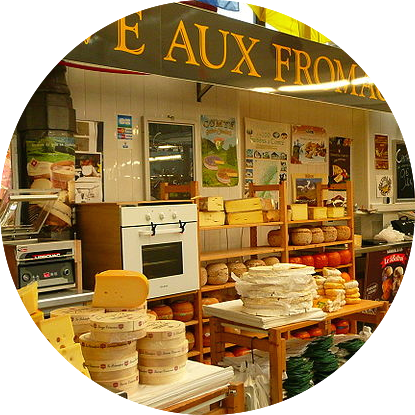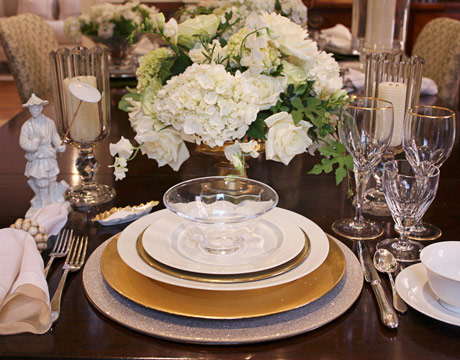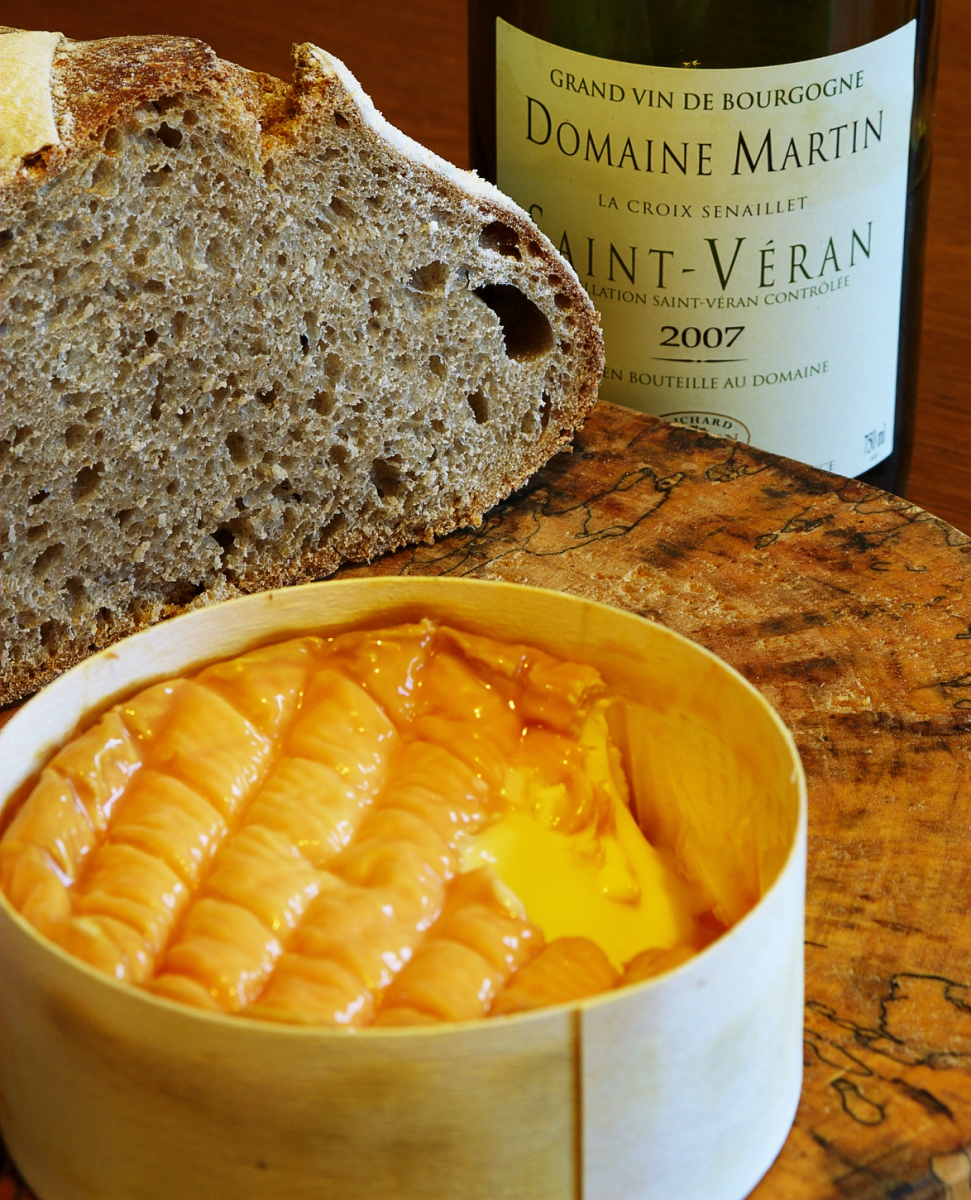Is the ‘French’ way of shopping gone for good?
 The idea of what it means to be ‘French’ comes with many connotations, creating an iron-clad stereotype that is instantly recognisable – although, as we know, not necessarily true.
The idea of what it means to be ‘French’ comes with many connotations, creating an iron-clad stereotype that is instantly recognisable – although, as we know, not necessarily true.
Imagine Pierre (typically French name deliberately chosen); a rakishly thin Parisian, with tousled black locks, tottering along the cobbled streets, toting a freshly baked baguette de tradition under his slim (and probably clad in black cashmere) arm.
He also has a bag filled with artisan goodies, making the mouth of any self-confessed foodie moisten. Some foie gras, a triangle of creamy Brie, a fresh bouquet of lovingly arranged flowers; standard Parisian things for a standard Parisian day. Supposedly.
A French image
So goes the image of the French; les citoyens dedicated to shopping around and sourcing out local, artisan goods – thereby putting many of us who hop to the nearest Tesco to shame. However, when I recently conducted a series of interviews with the patrons of these small Paris businesses, many voiced a worry that all of this is starting to change.
Such a worry was firstly expressed to me by Bruno; a refreshingly open and charming boulangère on Rue Saint-Jacques. He spoke of the changing market and how difficult it is to begin working in this type of sector. “Il devient extremement difficile à travailler dans ce genre de entreprise,” he told me – “It’s becoming extremely difficult to work in this type of business”.
“Il devient extremement difficile à travailler dans ce genre de entreprise.”
His fear was echoed by the hard-working fleuriste on Boulevard Montparnasse, who made mention of the decline in purchases made – mostly a result of the recent economic crisis.
Their concerns made me wonder: is ‘Pierre’, with his carefully chosen goods, still the norm, or is he the exception? And what is the reality for the small businesses of France? Is the trade as blooming as we often suppose it to be, or are they indeed en train de disparaître?
A firm base
With over 80 000 independent retailers to be found on French soil (a staggering 40 000 of which are boulangeries), a disappearing act seems unlikely – especially when you consider that this figure more than doubles that of the UK.
This difference is staggering – given the fact that the UK and France are hardly geographically at opposite ends of the globe. Rather than continuing to simply read more and more stories online about this disappearing way of life, I decided to ask the opinions of those who truly know the reality: the very people who own les boulangeries, les fromageries et les fleuristes.
A different sort of mind-set

This kind of attention to detail is linked to an importance placed on eating in season and sourcing locally. And when it comes to literally being at the table, it means sitting down to dinner, eating slowly, and enjoying the flavour of the food. Which explains why the fleuristes I spoke to made note of people often stopping in once a week to prepare for dinner guests, and why so many small-business owners were proud of their loyal client base that live in the neighbourhood.
The French: famous for their fidelity?

It was an effective and impressive means of thwarting the plans of the major supermarket chains. These laws facilitated the survival of small businesses in a way that was simply not done in Britain – or many other places in the world.
Changing times for French shopping

Furthermore, competition is increasing for the smaller businesses, with shops now opening on Sundays in touristy areas to increase profit margins for tourism, and larger shops now operating ‘la journée continuée’ and declining the long-and-leisurely (and oh-so-French) lunch-hour.
So does this mean all boarded-up shops?
Undeniably, France has had to adapt to many changes. Smaller businesses still usually close for lunch, but these long-and-leisurely lunches are becoming a thing of the past, with lunch hours shortening noticeably. In smaller towns, the changes are felt more strongly, with larger supermarkets popping up and boarded-up shops becoming a more common site.

Anne Leroy, the welcoming fleuriste of Au-Dela Des Pres took a positive view on the spending habits of her clientele. Although she acknowledges that the economic crisis has undeniably had an effect, she described how her shop is still busy. The difference, however, is that people take the time to consider their purchases and reflect upon their choices with her. Endearingly, she underlined how she sometimes takes on the role of a shrink, listening to clients describing exactly what they are looking for.
She had a lovely way of putting it: “Il faut comprendre: je vends pas les fleurs. Je suis fleuriste.” – “It must be understood: I don’t sell flowers. I am a florist.”
Du coup… artisan shopping: myth or reality?
Although the relaxing of laws and the economic crisis may have dealt their blows to small businesses, thanks to the deeply engrained way of thinking – and eating! – the fromagères, fleuristes and boulangères of Paris have held on surprisingly well.
Remember Pierre? Well, he might not do this kind of shopping every day, or be able to spend quite as much money as he used to (and he certainly isn’t a representative of every single French citizen), but he is in no way a thing of the past. Like everyone affected by changing economic circumstances, he has adapted to changing times – and to changing budgets – and he isn’t quite ready to swap to a weekly online Tesco shop.
Have you noticed a change in the ‘French’ way of shopping? Join the debate on Twitter, or share your comments with us below!
Image credits:1. Cheese shop, by Pfctdayelise via Wikimedia.
2. Boulangerie by Ludovic Péron, via Wikipedia.
3. Table settings, via Haute Home.
4. Carrefour, via Masstecfire.
5. Casino by Michel Viala, via LaDepeche.fr.
6. Epoisses Bourgogne cheese and wine by Traaf, via Wikipedia.








Interesting read, Jill. Thinking about French stereotypes and the a portrayal of always buying local, I think it is possible to draw parallels with an image of a Brit buying local or organic produce – when in reality, it doesn’t happen. Convenience is king for many nowadays. I think the mould is sometimes better filled (or more realistically filled) by tourists seeking to live the French way whilst having the time to do so! That said, there are always French locals at their local markets – an example of convenience coming to them. You only have to walk around or visit a French person’s house to witness and observe traditions that are still commonplace, even if they are less frequent than 20 years ago. Vive la tradition!
My parents had their honeymoon in Paris and I’ve been told the story countless times of how they almost starved because they arrived from London at night and all the shops were shut. Those were the days that there wasn’t a single supermarche in Paris!
There’s something to be said for keeping local places alive, but I think it’s also good to have shops open until midnight or similar, at least one in every neighbourhood! Even I, myself, find it hard to go grocery shopping at stores other than big supermarket chains as I work 6 days a week. Sunday is my only day off and all the lovely boutique shops aren’t often open!
Tradition in France has certainly done a better job of hanging on in there Esme – in the area I live in Glasgow, we’re spoilt for choice with small, artisan shops and gorgeous cafes, and yet because it’s a student area, most of us cheat and head to Tesco and Lidl. The French language assistants were shocked! They stressed how `bobo` this area is- and how much they love it!
Sadly I think that at the end of the day convenience and affordability often win out over buying local – especially if you’re time poor and/or just poor… I suppose that’s just another luxury that comes with wealth – having the resources to shop in the traditional way.
I literally just had this discussion earlier today, Jill! It is interesting that these unique and deliberate French shopping traditions of buying locally sourced and produced goods are going through such an evolution. However, I feel the French fall somewhere along a buyer’s spectrum depending on their lifestyle. Perhaps their lifestyle leaves them time poor, so their only option is to shop from giant retailers like Carrefour or Casino, where often travelling to a megastore affords them many more options, not just for groceries but for clothing and whatnot in the one location. I remember seeing one of these for the first time in France and was blown away by the idea of combining the discount department stores with the supermarkets so can definitely see the appeal!
On the other hand, it is getting incredibly gruelling for the artisans to compete, particularly as they are getting taxed more and more. There are those French who make the effort to support the locals, who vouch for quality and know the face behind the businesses.
In my opinion Australian buying habits are quite similar to the French where we do consider convenience, but also we think, oh there’s a reason why I’m such a loyal, repeat customer at this little boutique near my place.
Julia, thanks for your comment! 🙂 I agree with everything you noted- although I can’t really judge Australian buying habits. The ‘French’ way of shopping made me sad when I thought how we lack this in Ireland. Sure, we buy some bread outside supermarkets and have bakeries, but we don’t have anything like the great places to buy cheese and specific shops (such as ones in France which sell just olive oil!). But that said- we do buy potatoes from farms quite often ;).
Supermarkets are so increasingly popular- but I can completely see why. I can’t afford to buy everything in specialist shops, but because of writing this article, I do try and make the effort to buy cheese/ fruit and vegetables and occasionally wine outside of supermarkets. As tesco says- every little helps!
One thing that has really changed in the last few years, is all those small “local” markets run by the big chains, (Franprix, Monop(rice), Carrefour, etc.) I’m not sure what shops they replaced in those locations. But they now seem to be everywhere.
The other thing that you didn’t mention is the ever present local markets run by Arabs (sorry for the stereotype but most Parisians know what I’m talking about) that are open 365 days of the year until midnight or 2 in the morning. Always good for those food late night emergencies or bottles of wine or liquor! 🙂
The French have had a love affair with the big supermarket for a long time – though they always seem to make room in their budget for the artisan shops. I think a lot of it is the high taxes that they have to pay so that limits their budget. I know if I earned more money, I would almost exclusively use the smaller shops but alas, they only get a percentage of my meager budget.
Bonjour Charles I couldn’t agree more with your comment, I’m not sure about the point about high taxation causing more adoption of huge supermarkets though. Does anyone else have a view on this.
Charles, welcome to the MyFrenchLife community – I look forward to chatting more soon.
Judy
Jill do you know why people still shop in small shop’s to this day?
I thought that readers who’ve enjoyed this article may also enjoy this one –
https://francetaste.wordpress.com/2019/01/22/grocery-shopping-in-france/